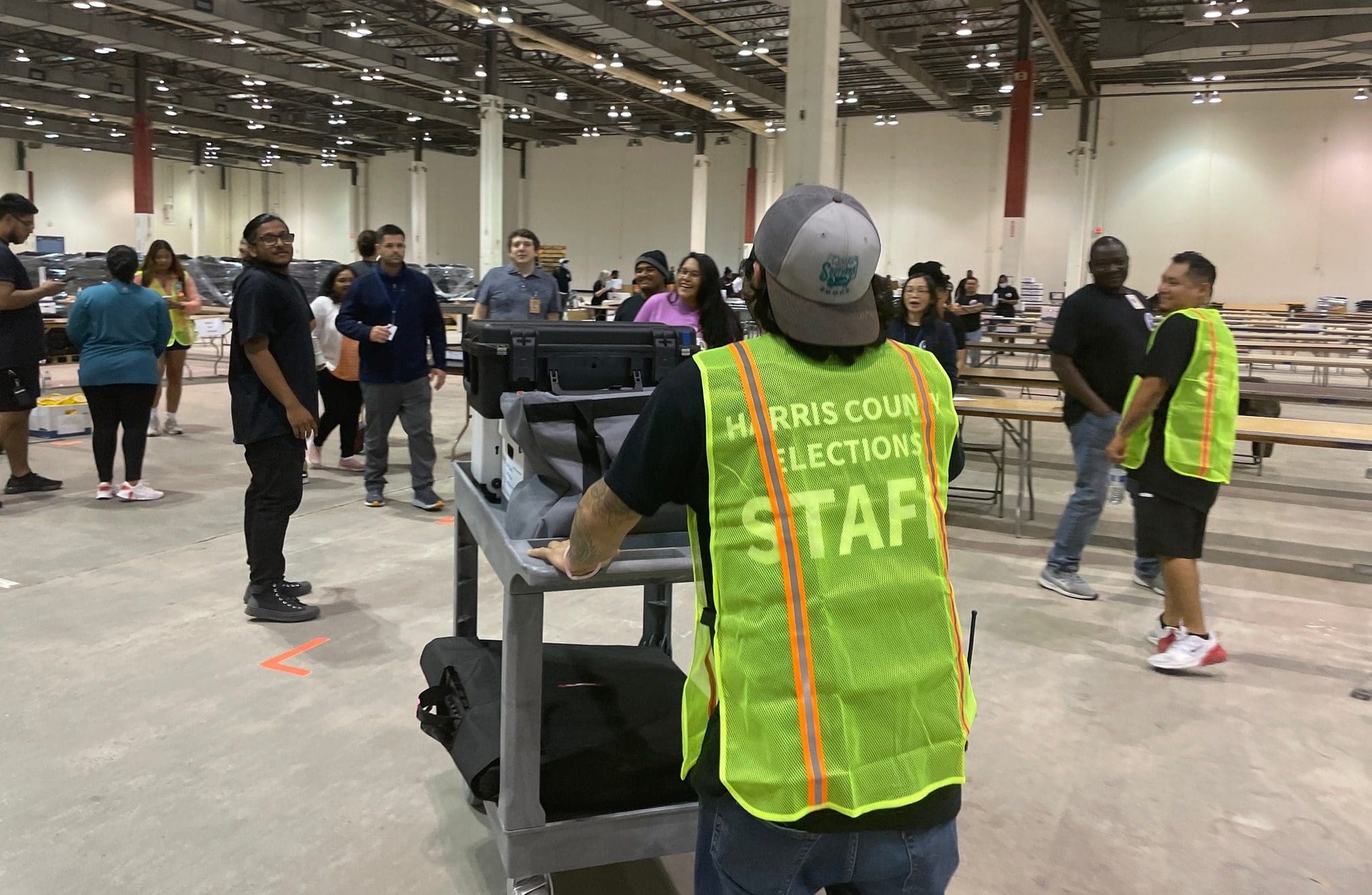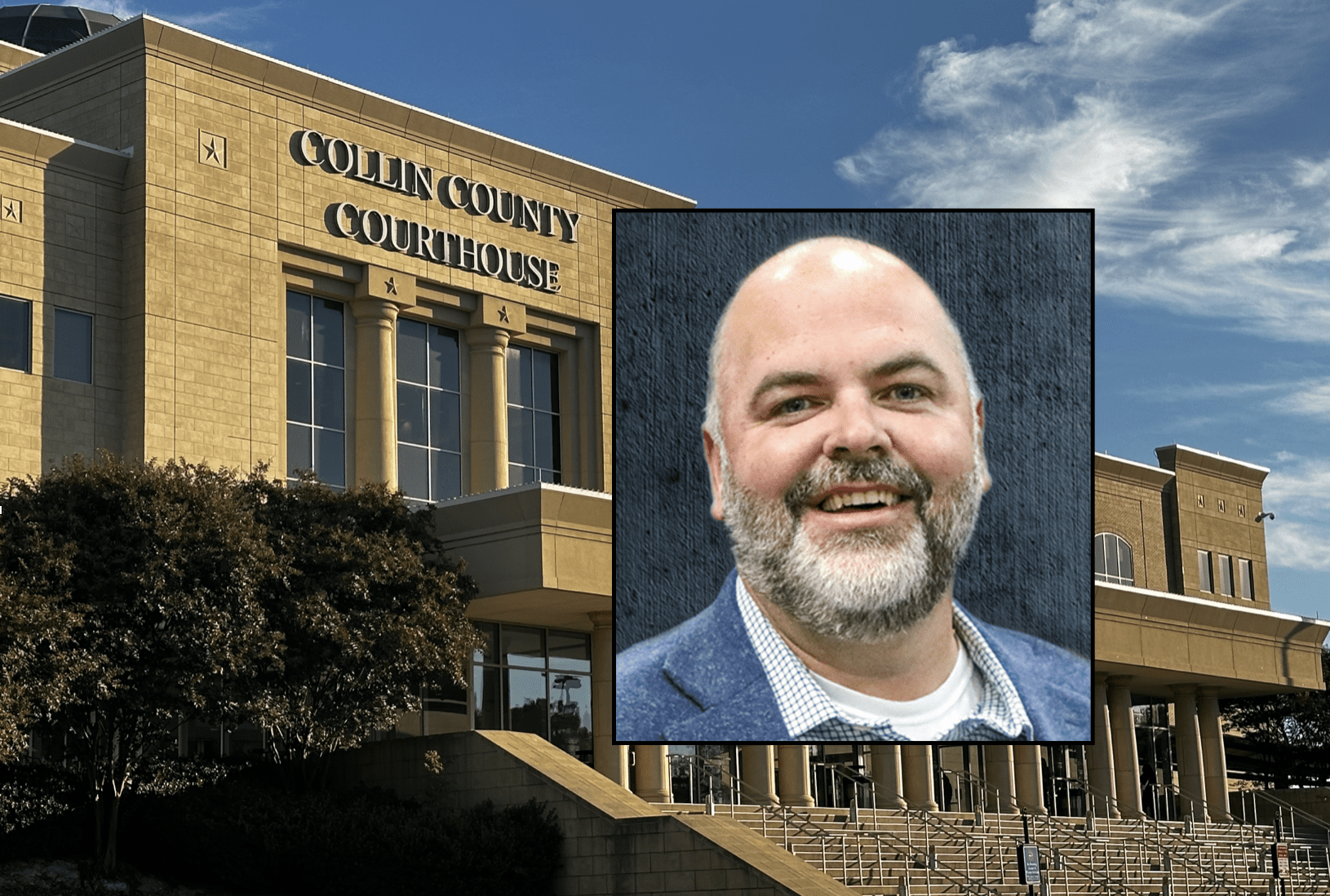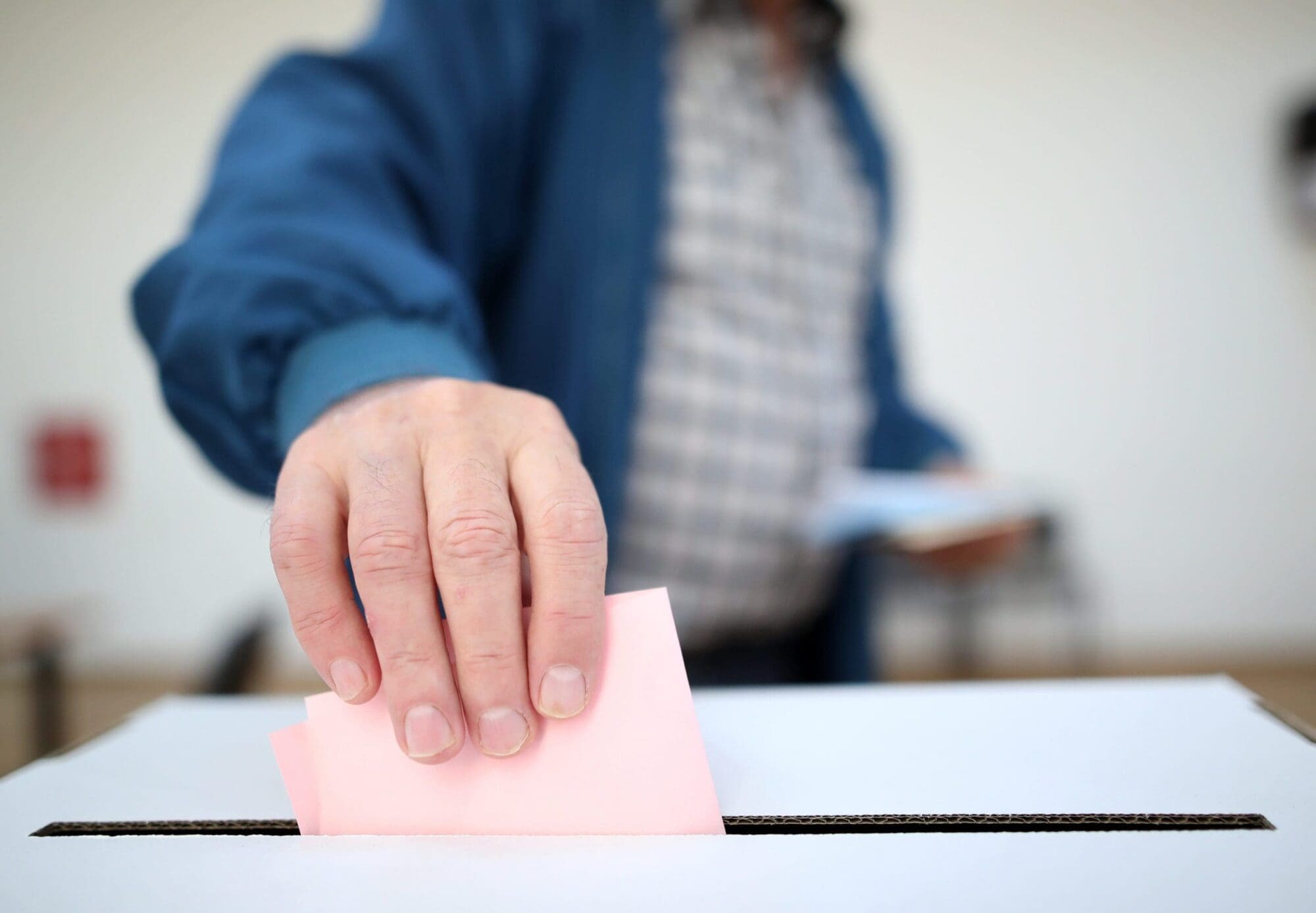An ongoing fight over election integrity between the Harris County Republican Party and the county’s outgoing Elections Administrator Isabel Longoria went to the Texas Supreme Court just hours before polls closed in the state’s primary runoff elections.
On Tuesday, the Harris County GOP petitioned the court to stop a plan devised by Longoria to deploy “deputized” county employees to pick up voted ballots and equipment from the polls at the close of voting on May 24 and then transport the materials to the central counting station.
Texas Election Code assigns that responsibility to the presiding election judge at each polling place, though judges may choose to delegate the delivery task to one of their appointed clerks.
The party argued Longoria’s plan violated state election laws and chain-of-custody protocols for returning voted ballots, voting equipment, and other election records.
The Texas Secretary of State’s office, which oversees how state election laws are implemented, agreed with the Republicans, and Harris County GOP Chair Cindy Siegel advised her party’s election judges to return their polling place materials in accordance with the law.
The State of Texas also weighed in on the side of the Harris County GOP against Longoria, telling the court in a Tuesday filing “intervention is urgently needed.”
However, the Texas Supreme Court failed to intervene, and Longoria followed through with her ballot pickup plans.
That created confusion among Republican election judges at the polls, according to documents the party filed with the court Tuesday night:
[M]ultiple presiding judges have come forward to report that Harris County employees have approached presiding judges with a “letter” from Respondent [Longoria] directing them to deliver election records to the central counting station. Those county employees have insisted that they have been deputized to transport those records and argued with Presiding Judges who are reluctant to turn over their ballots. Some of the county employees have been Harris County constables, whose status as law enforcement officers cloak their demands with improper authority.
During Election Day, Longoria had sent messages to all of the polling places saying it was “optional” for judges to hand over ballots and voting equipment to her deputies—an argument the county made in its response to the court later that day.
Several election judges also reported that Longoria’s deputies showed up and asked to pick up materials at 6:30 p.m., half an hour before the polls closed. In addition, the county reportedly ran out of deputies around 10:00 p.m. and messaged Democrat judges who were waiting on pickups to deliver their materials themselves.
While Longoria had “pre-blamed” a predicted delay in reporting election results on Republican judges reluctant to turn over ballots to deputies, a central count worker said the last ballot drop-off was from a Democrat poll.
Republican Party officials say other missteps by Longoria’s office added to Tuesday’s election night confusion.
Election judges from both parties reported that an access code needed to close down voting equipment Tuesday night did not work. The elections office eventually messaged the correct code to all the polling locations.
Also on Tuesday, Longoria issued a last-minute switch in the entrance to be used to access the central count drop-off location, which she had changed the previous week from the county’s Election Technology Center to NRG Stadium, ostensibly to accommodate judges returning their own materials.
Judges were directed to drive their vehicles through tents set up in the NRG parking lot, where workers unloaded bags of ballots and other records and equipment.
One Republican judge reported that the workers did not inventory the returned materials.
Another judge said the worker who unloaded his materials refused to sign a chain-of-custody transfer document. The judge had to insist that the worker find a supervisor to sign the document.
Alan Vera, head of ballot security for the Harris County GOP, told Texas Scorecard the party hasn’t yet verified how many judges were able to get their chain-of-custody paperwork signed by a county elections worker.
At the end of the ballot-counting, which continued until the early hours of Wednesday, the preliminary election reconciliation forms for both Republicans and Democrats showed mismatches between the number of voters and the number of ballots counted or pending.
While there have been no indications of fraudulent activity, chain-of-custody issues and other missteps raise questions about the integrity of the process.
“Incompetence is the perfect camouflage for fraud,” Vera said.
Harris County Republicans have questioned Longoria’s competence since the county hired the Democrat in late 2020, even though she had no experience running elections.
Longoria botched this year’s March primary elections so badly, she was forced to resign. But her resignation doesn’t take effect until July 1, so she was allowed to oversee the nonpartisan May 7 elections and May 24 primary runoffs in the state’s largest county.
She first implemented her ballot pickup plan during the May 7 election.
Afterwards, the Harris County GOP described a series of missteps and chain-of-custody violations, including 13 ballot bags that “went missing” and were not delivered by Harris County employees until the following morning; a 15-hour delayed final count of the votes after the closing of the polls; multiple polls where “deputized” Harris County employees never showed up to pick up the ballots after the polls closed; and an election judge instructed by the Elections Administrator’s office to take voted ballots home when no one from the county showed up to pick them up, and to “just bring them in the next morning.”
The Harris County GOP has filed a breach of contract lawsuit against Longoria over her mismanagement of the March 1 primary election.





